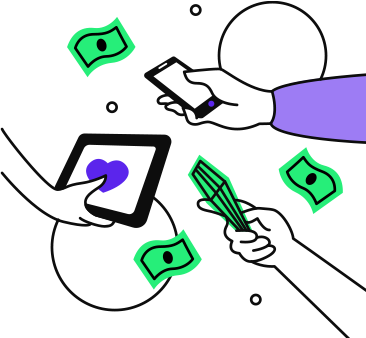You’ve all gotten used to the war between iOS and Android. In fact, it is this never-ending rivalry that has caused so many brilliant innovations to sprout as they put in extra effort to step on each other. But really, how different is one from the other? Which of the two is better – an iPhone or an Android device? Of course, one of the most pressing issues that people will always look at is security. Let’s see which of the two players excels at this level so that we can be one step closer to defining which of the two really is better.
Openness of Platforms
If an iPhone and an Android device are completely different from each other in terms of branding and physical appeal, you will probably be even more overwhelmed at the differences they have inside.
Yes, the Google platform actually owns 80% of the market. But this is mostly because the entire user experience is very flexible, very adaptable. This is the Android gadget’s source of risk. This level of flexibility and customization also leaves the device extremely open to attacks.
Looking at iOS, Apple pretty much controls your every move. There are a lot of restrictions, a lot of limitations. However, this level of control also makes the iPhone more secure, by theory. Because the entire ecosystem comes from Apple, there are little to no chances of any risk seeping through the cracks.
Although Android users have found different ways of securing their own phones against different kinds of attack, Apple users do not have the same worry. One may argue that the iOS has been open to attacks lately, but keep in mind that most of these instances were due to user error. In this regard, it is vigilance that would keep an iPhone safe, and not some anti-virus of any kind.
Security Updates
Here’s another thing that a lot of users do not know, but experts who sell iPhones divulge – most Android devices do not receive security updates.
You would hear iOS users complaining about the frequent updates that they would have to download and install. But guess what. With every update you apply, that’s another patch applied on any cracks where bugs and potential risks can come in. Because only Apple uses iOS, any small hole detected can be easily covered up. Update sent, problem fixed.
But when it comes to Android devices, each bug could be unique to specific devices. With the vast number of different Android devices out there, you can probably do the math. Yes, Google comes up with patches. But these patches would have to be sent out to each separate phone manufacturer. From here, Samsung, LG, Lenovo, HTC, and all other Android device manufacturers would decide whether they want to release the patch or not. And most of the time, they would rather release a new unit than have the old ones updated.
So which of the two is more secure? The case has been set, the evidence presented. Now, you decide.










